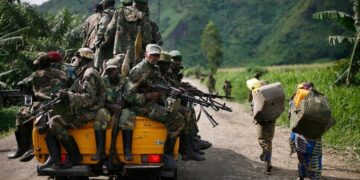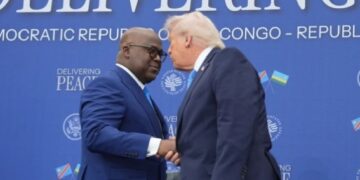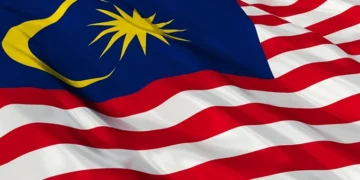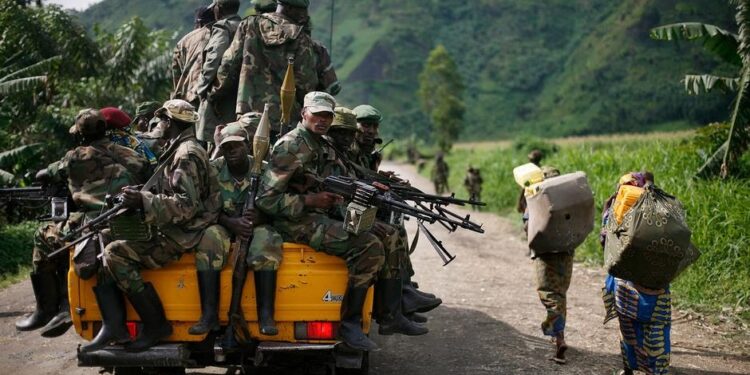Rwanda and the Democratic Republic of Congo (DRC) have finalized a draft peace agreement, brokered by the United States and Qatar, aimed at ending decades of violence in eastern Congo. The deal, expected to be formally signed next week, outlines a framework for disarming rebel groups, establishing joint security measures, and potentially unlocking billions in Western investment in the mineral-rich region.
The agreement, reached after three days of talks in Washington, includes disarmament and conditional integration of armed groups, including the M23 rebels, a joint security mechanism to prevent future conflicts, and respect for territorial integrity, though it remains unclear if Rwanda will admit to having troops in eastern DRC. It also provides for the return of refugees displaced by recent fighting and ensures humanitarian access, including the possible reopening of Goma’s airport for aid deliveries.
The conflict escalated dramatically in early 2024 when M23 rebels seized large parts of eastern DRC, including the strategic cities of Goma and Bukavu. Rwanda denies backing the M23, instead accusing Congo of supporting the FDLR, a Hutu-led militia linked to the 1994 Rwandan genocide. Past peace deals have collapsed, including a 2023 Angolan-mediated agreement that was never implemented. This time, however, high-level U.S. involvement – with Secretary of State Marco Rubio set to witness next Friday’s signing – has raised hopes for a more durable resolution.
While the draft marks progress, critical issues remain unresolved. It is unclear whether M23 will withdraw from occupied territories, whether Rwanda will acknowledge its military presence in Congo, if FDLR fighters will be disarmed after past failures, and whether Congolese refugees in Rwanda will be allowed to return.
Eastern DRC holds vast deposits of coltan, cobalt, and other critical minerals essential for electronics and green energy. The U.S. has reportedly pushed for the deal partly to secure access to these resources, with Kinshasa offering mining concessions in exchange for support.
Analysts warn that implementation will be the real test. Previous agreements have faltered due to mutual distrust, hidden agendas, and rebel factions refusing to disband. For now, the draft deal offers a glimmer of hope for millions affected by the conflict, but whether it brings lasting peace or becomes another broken promise depends on what happens after the signing.
A formal signing ceremony is expected next Friday, June 28. U.S. and Qatari monitors will oversee compliance, and potential Western investment could follow if security improves.




































